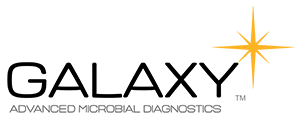We asked Dr. Ricardo Maggi, co-founder and chief technical officer at Galaxy Diagnostics and research professor at North Carolina State University, “Galaxy Diagnostics is celebrating our 10-year anniversary in 2019. As one of the co-founders, what have you learned about laboratory medicine over the years?”
In his reply, Dr. Maggi focused on the difference between the research environment and commercial diagnostic testing. Researchers are allowed to try different things in the laboratory. They can test the same sample in different ways to try to find out what species of bacteria are in it.
If researchers publish the results, they will have to explain the method they used and how it compares to other methods. By comparing different methods for testing, researchers try to find the best testing method. Published validation data is especially important for novel test methods, providing doctors with an expectation about how the test will be useful in clinical practice.
When a test is offered to the public, it has to be validated and standardized. By doing the test the same way every time, we know that the results of the test will be like the results we researched in our validation process. When we give a test result to a patient, we can tell them how accurate it is. For example, for our Bartonella ePCR test, this PDF explains what we know about how our test compares to other tests.
Simple tests do not have to be done in a CLIA accredited laboratory. These include FDA-approved test kits that patients use themselves like pregnancy tests and blood sugar monitors. You probably know what happens if you don’t do these tests the same way every time. For example, if you leave a pregnancy test sitting for longer than the time in the instructions, it may say that you are pregnant even though you are not.
The laboratory developed tests (LDTs) that are performed at Galaxy Diagnostics are not simple. There is a series of complicated steps we have to do the same way every time a sample is processed. Performing even one step outside of standard operating procedures (SOPs) can affect the accuracy of the results. This is why our tests are performed in a CLIA laboratory. “CLIA” stands for the “Clinical Laboratory Improvements Amendments of 1988.” These are Federal laws that determine the best practices laboratories should follow when testing human samples for diagnostic purposes.
The CLIA program is implemented by a division of the Center for Clinical Standards and Quality (CCSQ) and covers about 260,000 laboratories across the United States. The Federal CLIA requirements are generally all that is required, but some state departments of health have their own standards. For example, Pennsylvania and Maryland require additional permits for clinical laboratories.
Furthermore, there are independent accreditation agencies—such as COLA and CAP—responsible for ensuring that laboratories follow strict quality control standards and provide guidance when necessary. Labs must be accredited in order to receive CLIA certification. Galaxy Diagnostics is proud to provide accurate results as a COLA-accredited CLIA laboratory.
You can find out more about CLIA on the CDC website here. You can even search for our CLIA accreditation on the CDC website. For specific information regarding the quality of our testing and the licenses we have, please see our quality assurance page.
Transcript of Video:
It’s not an easy road to go through. And one thing is when you are attached to a CLIA setting in a human [diagnostics] site it is very restricted, for good reasons. But it doesn’t allow you to, as I normally call it, “play with the samples.” Trying to push every single sample as [if] it is the last one you are going to test for and trying to get the best of your resources to have an answer, even “yes” or “no.”
That’s not possible for a CLIA accredited lab because you need to stick with what you’ve proven and validated. [Those] are different rules from the research or scientific side. It’s not an easy road, but it’s a protected one. It’s to protect the integrity of the patient and to protect the integrity and the result and trying to be as real and truthful as it can be.

